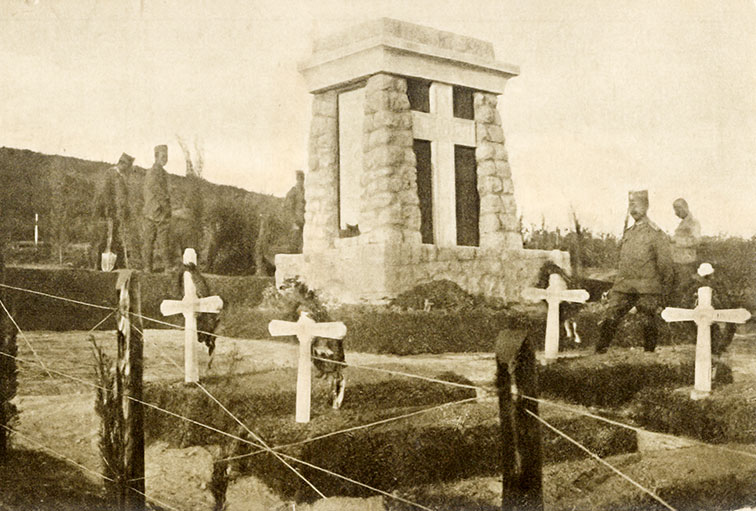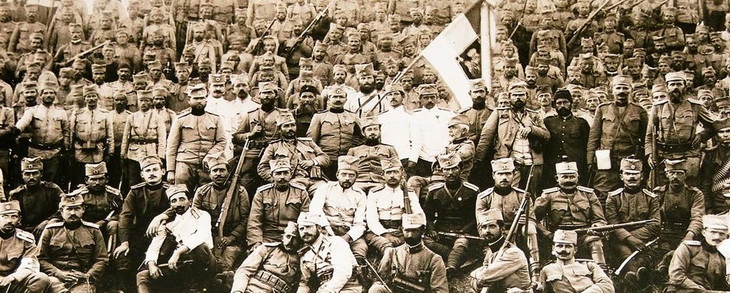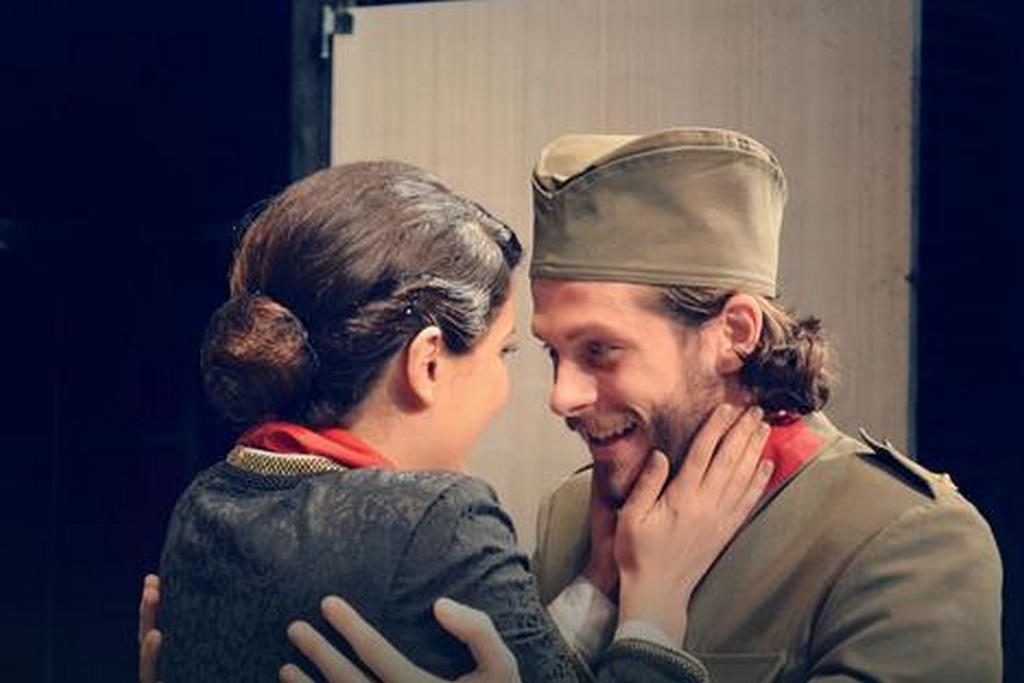One of the most beautiful Greek love songs was written during the great suffering of the Serbian army in World War I and during their stay on the island of Corfu. It is well known that this island has become a refuge for Serbian soldiers, and a lot is known about the friendly attitude and welcome of local villagers towards the Serbian army.
After withdrawing of the Serbian army from Corfu and transferring to the Thessaloniki Front, moving towards the final liberation of their Serbia, the Serbian soldier presented these words to Hondroanis Haruli. Hondroanis was a girl from Corfu, who later transformed these words into a poem with a small revision. The song underwent only minor revisions, so the version written by Eftihia Papagiannopoulos (Ευτυχία Παπαγιαννοπούλου) was also heard by the famous Greek composer Dimitris Kougioumtzis (Κουγιουμτζής Δημήτριος) who edited it and wrote the music, and soon after it was sung by Georgio Dalaras.
The Greek woman, Hondroanis Haruli, was one of the sisters of the closest lineage of Yiannis Yanoulis, a man who donated his only field to the Serbian army for burial of their dead soldiers. This field was never cultivated again. Later, a monument to the “Drina Division” was erected on that field. The monument was erected by the surviving warriors to their comrades, and is located near the place of Agios Mateos.

During their stay in Corfu, the Serbs established strong ties with the locals. Many marriages have also been made and many have stayed here to live.
The letter of a Greek woman from Corfu, written to a Serbian officer on the Thessaloniki Front in 1918, testifies to how the Serbian soldiers, even in those circumstances, were dear guests on this island.
This letter is still kept in the archives of the Serbian Academy of Sciences and Arts today, and we are transmitting it to you in its entirety:

“Since you Serbs left Corfu, I have not yet rejoiced. That’s what all the people who live on this little island say. It would be better for us if you did not come to Corfu, because it is not the same now.
For the past three years, I have become so accustomed to those tame faces of soldiers, their benign kind eyes. You are a strange race! A Russian colonel told me that this is a feature of all Slavs.
These last three years, while you have been here, we have lived beautifully and pleasantly.
Every day I ran to the window to see some famous Serbian officer, just to greet me and smile at me, and I was feeling fulfilled for the day until bedtime.
Corfu is silent now. There is no singing. Your people are always singing and that singing and that murmur I was so used to.
You can consider me a great enemy of your people, because I always wanted your return to your homeland to be prolonged….”

The song became one of the many symbols of the unbreakable bond between Corfu and Serbs and was taken as the anthem of Greek-Serbian friendship. Thanks to Mr. Alesandros Pantikopoulos for the historical interpretation and of the creation of this beautiful Greek ballad – one of the most beautiful Greek musical works.
“Don’t be angry, my eyes, that I’m leaving for the unknown.”
Don’t be angry at me, my eyes,
That I’m leaving for the unknown….
I’ll turn into a bird
And Return to you again.
Open the window oh my blonde princess.
And with a sweet smile wish me a good night
Don’t be angry at me oh my beautiful eyes.
Come out for a second and let me see you.
And say goodbye…
Open he window oh my blonde princess.
And with a sweet smile wish me a good night


Thanks for this amazing information! I absolutely love this song that I learnt to play while living in Cyprus and still performing it here in England regularly. As somehow I ‘knew’ that there is a stronger connection with song than just music its self….
My Grandfather was a diplomat with the Royal Yugoslav Monarchy and stationed at the Thessaloniki front after the retreat of the Serbian army. Call it inspiration but he married my Greek grandmother Evridiki Nikoliadis and my father also married my mother who was Greek from the province of Macedonia Greece . Obviously this song has special meaning to our family and brings the same tears of the Serbian ballad such as March de Drinu or Tamo De Leco. Only now the Serbian royal guards and soldiers are getting some redemption but they don’t need vindication because they are in Gods hands . Konstantin Gregovic
So true! GOD bless Serbia! 🙏